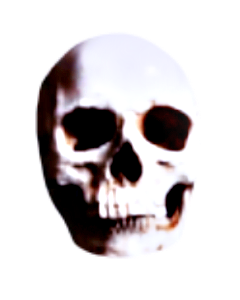FEB 20, 2020 // I DREAMED I WAS A VERY CLEAN TRAMP, RICHARD HELL
SAN FRANCISCO, CALIFORNIA
Richard Hell grew up in Kentucky and ran away from home for the first time as a young boy shortly before his father died of a heart attack. I think it was a heart attack. I’m writing this a few months after I finished the book. Richard starts out remembering his childhood with remarkable detail. He notes the smell of the building where his father worked, the trees that grew around there, his report card grades, and times spent with friends listening to records, and looking for trouble.
I used to find it remarkable when a popular music professional with heavy drug habits has a good memory, and an eye for details that better writers may pass over. Keith Richards, in his autobiography, references journal entries that also served as accounting log books for the earnings and expenses of The Rolling Stones’ early shows. I realize now that this shouldn’t be surprising at all that these sorts of people have good memories. Those who have struck a key in the cultural consciousness loud enough for little old me to hear must have had an above average set of faculties. I know more about baseball than I do about music. That is to say, I’m not studiously in search of the esoteric. What comes my way I catch, but I don’t go out of my way. I’ve been around a little bit though, and I’m quite sure it’s difficult to move to New York City as an eighteen year old, and through the tutelage and selectively good graces of a series of savvy girlfriends, low rent living situations, and dubious patrons, learn to make a living.
The book ends with Richard walking around his neighborhood in New York as a middle aged, sober, retired artist. Before that he did lots of drugs, played in the band Television in the CBGB punk scene, played in a band with Johnny Thunders after the New York Dolls, published poetry periodicals, and was somewhat rude to Allen Ginsberg. My favorite passage was when he compared the George Bush World Trade Center, flag waving supporters after the September 11, 2001 attacks, to the attendees of a March 1967, Central Park “Human Be-in.” I have it underlined in pencil. That’s the first time I remember doing that. I’m making progress in my student habits. The passage goes: “For Bush’s Americans that dubious idea was the virtue of self-righteous patriotism, and for the hippies it was the practicability of universal kindness and generosity. The people joined together by those unexamined assumptions seemed idiotic. On the other hand, my inability to fit in was involuntary too.”
Yeah. I feel that way, and it’s probably why I usually don’t like parties. Richard Hell certainly made a lot of music and artwork. He says that he designed the aesthetic of his bands. By this I mean the clothes, haircuts, and artwork of the flyers. He understood how marketing and image related to understanding the art itself. One must see the utility in being. Even being a junky has utility. Pretty little things like birds with broken wings, and so do wealthy would be uncles, but you have to have the fortitude to sleep with one eye open, for like twenty years or so. This book, like the previous one in this list, was a birthday present from my friend Sterling in May of 2018.


